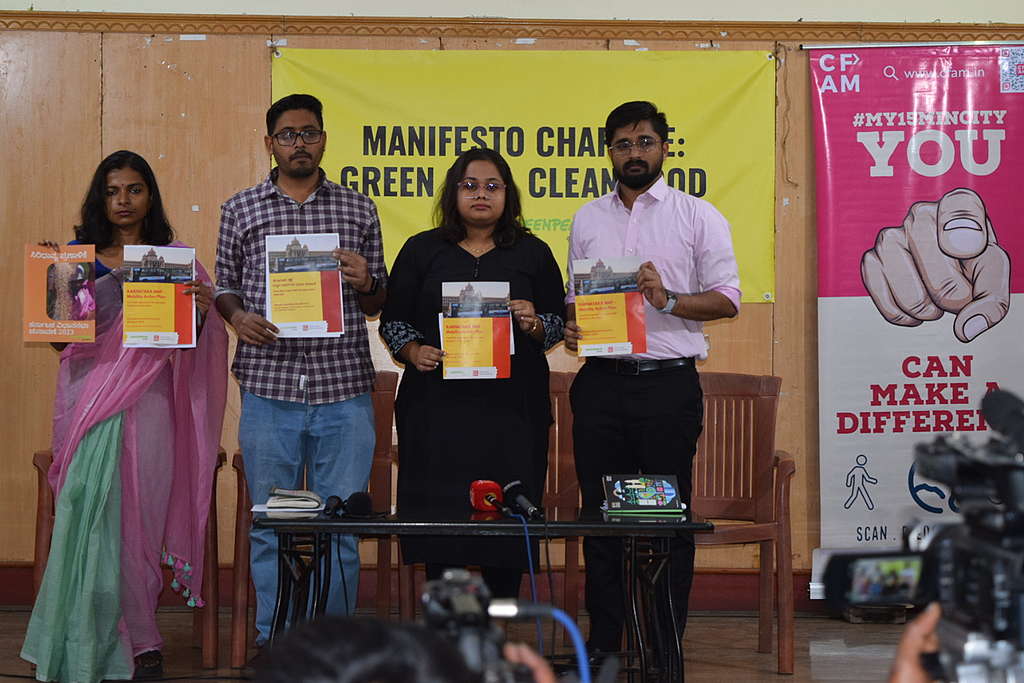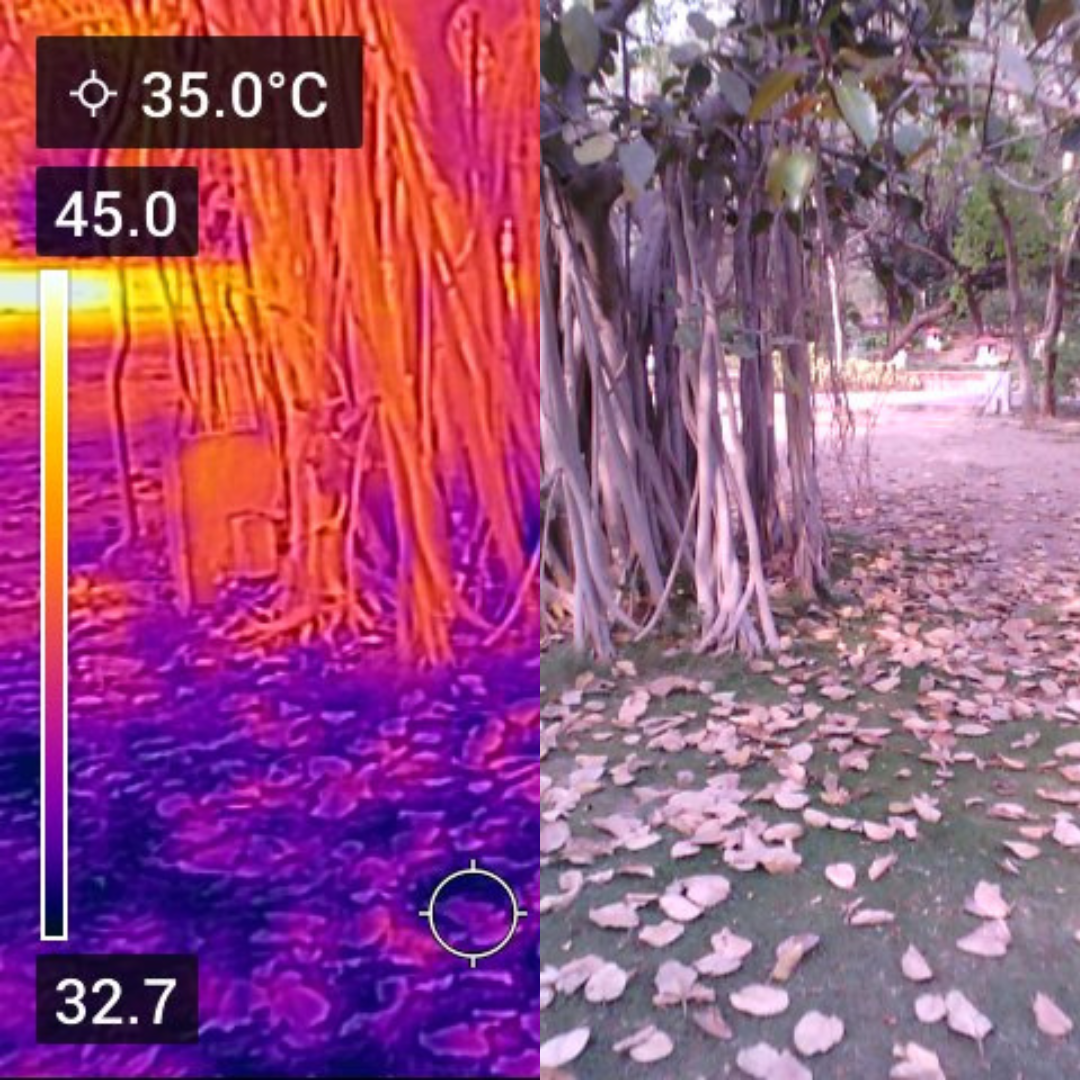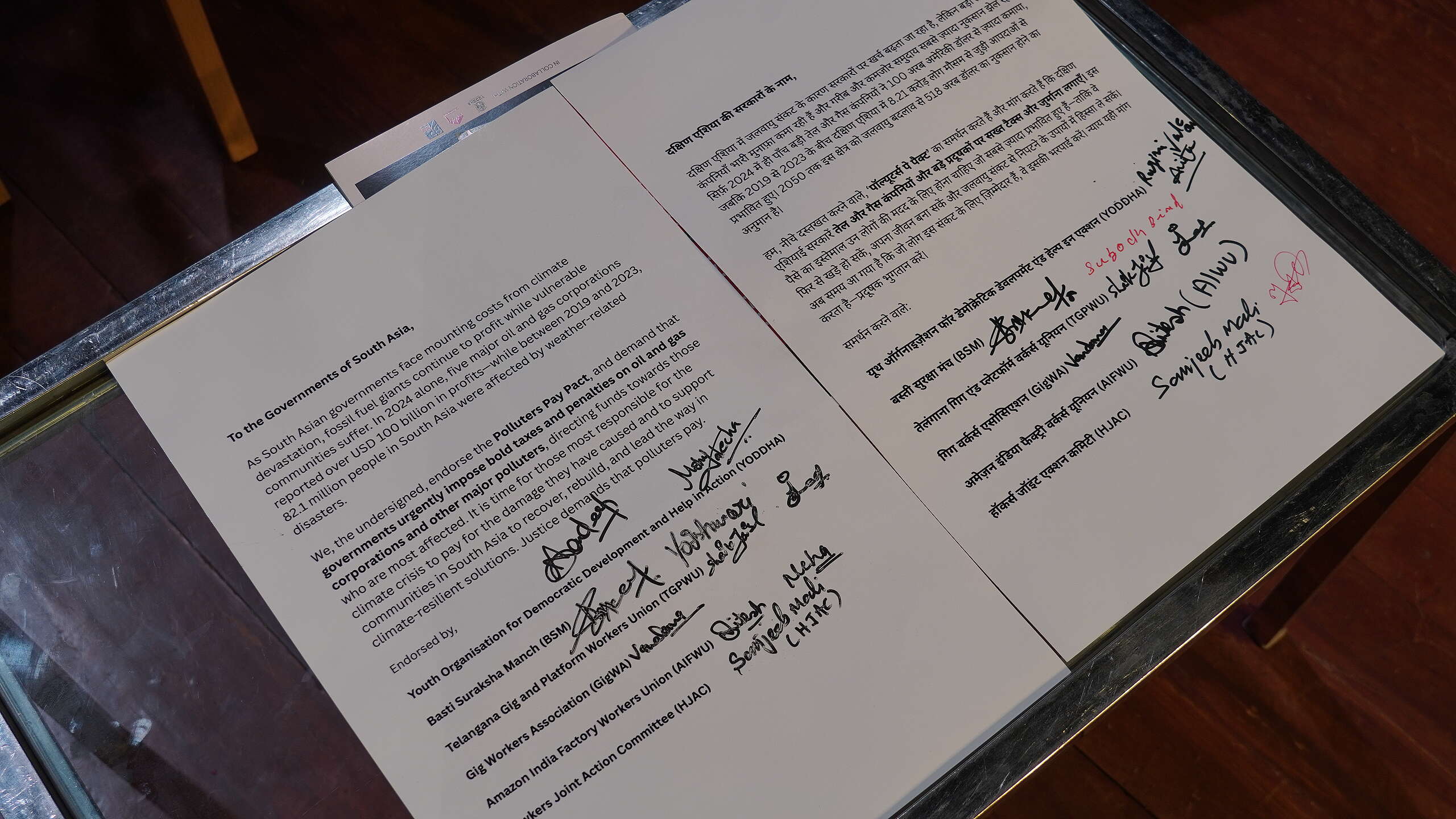
Bangalore, April 13: Ahead of the state assembly elections in Karnataka, Greenpeace India submitted a collective 20 point recommendations to political parties on issues pertaining to sustainable cities and nutrition diversity. With these recommendations, Greenpeace India has called on political parties to make critical environmental issues such as urban justice, equitable mobility and safe, local foods the basis of current and future legislative discourses.
The recommendations on sustainable cities focus on providing a stronger impetus to public transport, non-motorised transport(NMT) like cycling and walking and also supporting hybrid work systems that will help reduce congestion. One of the major talking points through these recommendations is the revival of the Bus Priority Lane along ORR and execution of 11 other bus lanes as suggested in the Comprehensive metropolitan plan. Bengaluru’s growing congestion and pollution levels calls for these changes on an urgent basis.
“Building more flyovers, roads and elevated corridors means we are encouraging more private vehicles, completely ignoring that the masses travel in buses and NMT. The more exclusionary we become, the less sustainable and livable our cities are. We need to focus on getting more buses, bus lanes, cycle infrastructure and disincentivize private transport without further delay. Our city is at stake here”, says Amruta S N, Greenpeace India Campaigner
“The city infrastructure and quality of life is under severe pressure from uncontrolled growth and usage of private Motor Vehicles. Investment in alternative forms of mobility hasn’t kept pace with the investments in motor vehicles. This lopsided priority needs to be corrected by political agenda setting that steers and sets a balanced transport vision for Bengaluru. We firmly believe that the increased prioritised allocation of monies and policies towards bus, cycling and walking needs to be a commitment in every party’s manifesto for governing Bengaluru going forward” says Ajay Nandakumar From the Council For Active Mobility.
Greenpeace India also presented recommendations to build more resilient food systems in the face of the climate crisis that is altering India’s weather patterns. Among other recommendations, in order to encourage growing of the climate-resilient millets, farmers should be incentivised for their contributions in nurturing less fertile lands and reducing agricultural emissions. Greenpeace India is also demanding that the entitlement for millet farmers be increased from the existing Rs 10,000 per hectare to Rs 25,000 per hectare.
“India faces critical challenges to social security, particularly food and nutritional security due to the climate crisis. The changing weather patterns and its implications on farming and food, means we should build food systems that not only mitigate the climate crisis but also help build resilience of the communities to adapt better. It is in this context that millets could be a game changer for Karnataka. Climate resilient and nutritious millets have culturally been part of food habits in the state, given a good policy and infrastructure push such as inclusion of millets in mid day meals and public distribution system, supporting self help groups with millet processing units, procurement at minimum support price and ensuring market for millets will add to the dietary diversity. Hence, we urge the political parties to adopt the recommendations and the new government implements it on a war footing,” says Rohin Kumar, Senior Campaigner, Greenpeace India.


